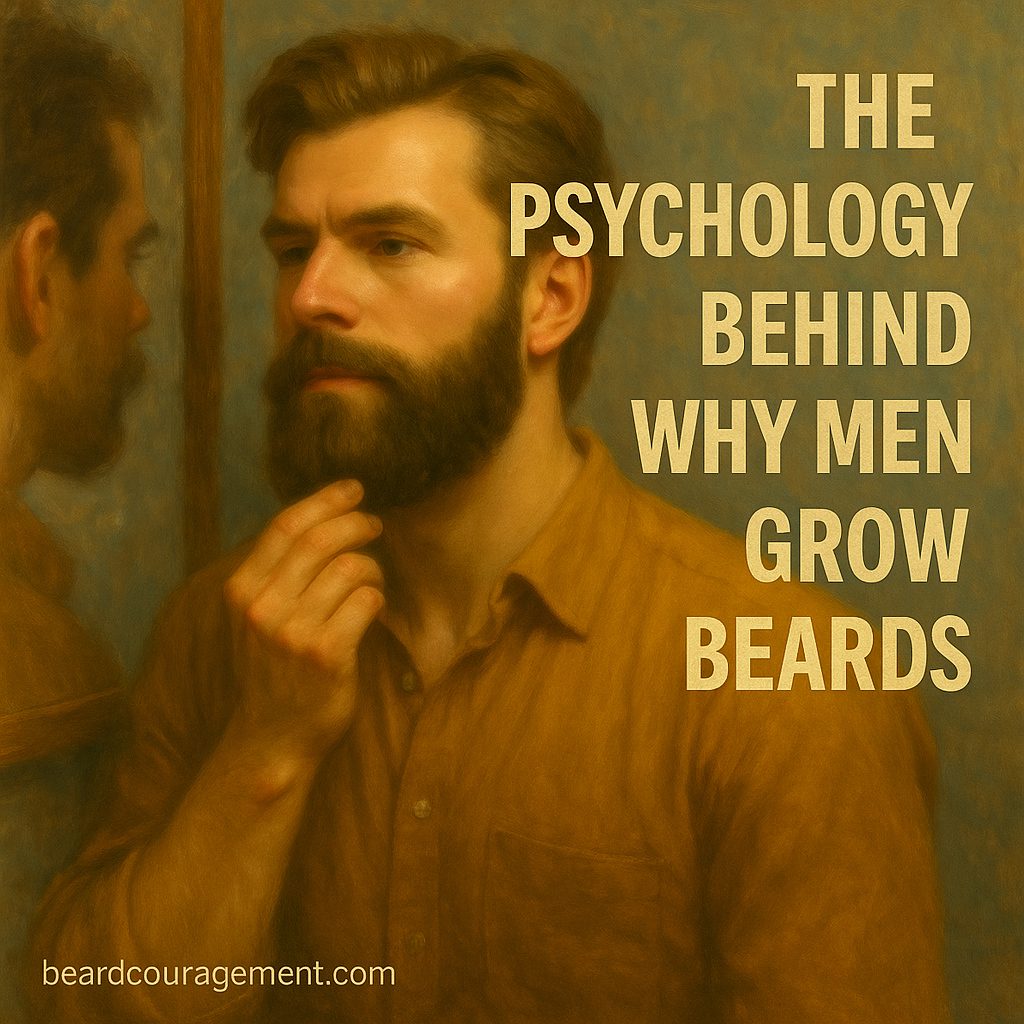
Beards are more than just facial hair — they’re a statement of identity, confidence, and individuality. Across history and culture, the decision to grow (or not grow) a beard has reflected deep psychological and social motivations. From self-expression to social signaling, the beard tells a story about who a man is — and how he wants to be seen.
Beards as a Form of Identity
For many men, a beard is part of personal identity — a reflection of character, confidence, or independence. It can represent a rite of passage or a conscious choice to stand out.
- Beards symbolize maturity and self-reliance.
- Growing one often feels like reclaiming control over one’s image.
- It becomes a visible part of personality and confidence.
Research shows that men often report feeling more self-assured and masculine when they grow a beard, not because it changes who they are — but because it reinforces how they see themselves.
The Role of Masculinity and Social Signaling
Psychologically, beards have long been associated with strength, dominance, and authority. Studies from evolutionary psychology suggest that facial hair can enhance perceived masculinity — both to oneself and to others.
- Beards can signal maturity and leadership qualities.
- They may increase perceived confidence in professional or social settings.
- Some men grow beards to challenge societal norms around grooming and image.
In essence, the beard can act as both armor and identity, influencing how others perceive you and how you perceive yourself.
Beards and Self-Expression
For many, growing a beard is a creative process — shaping and styling it becomes a form of artistic expression. Much like tattoos or fashion choices, beards help men communicate individuality without words.
- Each style tells a story — rugged, refined, or modern.
- Grooming rituals provide structure and self-care.
- The act of growing and maintaining a beard can be meditative and grounding.
The Confidence Effect
The “beard effect” on confidence is real. When men feel good about how they look, their posture, voice, and behavior often follow suit. This self-assurance can translate into better performance at work, improved relationships, and higher self-esteem.
- Beards can serve as a psychological anchor for confidence.
- Regular grooming reinforces discipline and routine.
- Compliments or positive reactions amplify self-image.
Cultural and Social Factors
Culture also plays a major role in beard psychology. In some societies, beards are symbols of faith or wisdom, while in others they’re linked to rebellion or artistic expression. Each beard carries a story shaped by time, place, and purpose.
Key Takeaways
- Beards are powerful expressions of confidence and individuality.
- They influence how men see themselves and how society perceives them.
- Beyond appearance, beards carry deep psychological meaning tied to identity and self-worth.
